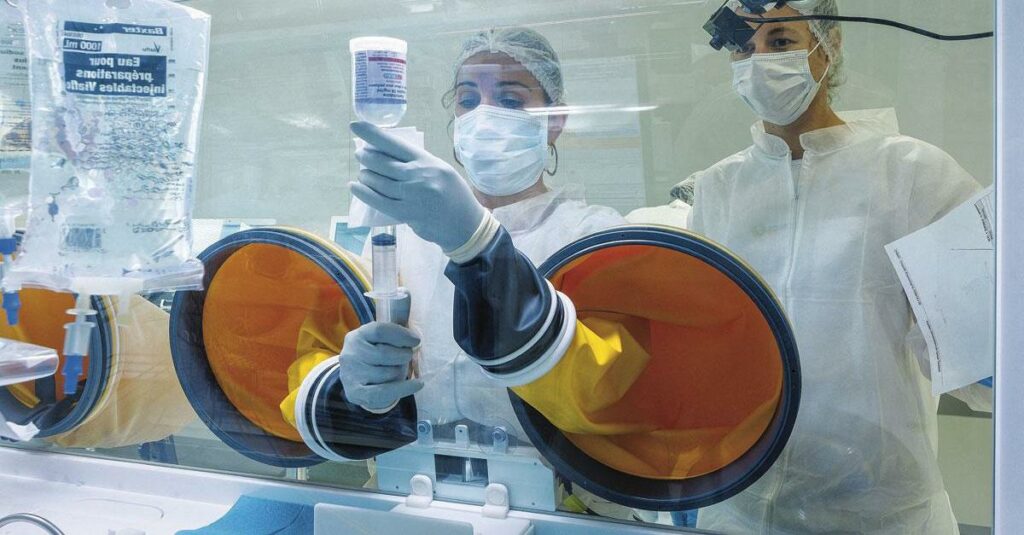The number of patients with pancreatic cancer in Belgium is increasing year after year. Compared to before the coronavirus pandemic, cases have increased across the country by between 25 to 60 percent, depending on the region.
Across the hospital network of Antwerp, the number of patients with a pancreatic tumour has increased by 60 percent, compared to before the corona pandemic. In 2019 it was 37 patients per year, in 2021 - the most recent figure - that rose to 60 patients. The same trend is also confirmed by the university hospitals in Leuven, Gent and Brussels.
Brussels recorded 32 cases in 2019, increasing to 49 in 2021. Ghent records an increase of about 25 percent. Every year, 90 to 100 pancreatic cancer patients find their way to the university hospital in Gent for treatment. "But even before the corona pandemic, mortality from pancreatic cancer was already rising," Professor and pancreatic surgeon Nouredin Messaoudi from the UZ Brussel told De Morgen.
Related News
- 'Tittoos': Tattoos changing the lives of breast cancer survivors
- Expensive cancer treatment 'under-delivering,' says recent survey
According to the Belgian cancer registry, the number of patients in our country has doubled in the past 15 years. "During this period, there has been a marked increase in the number of pancreatic cancer diagnoses per year,” the registry states. “In 2004, there were 572 diagnoses in men and 499 in women. These numbers rose to 1,028 in men and 1,015 in women in 2020. This indicates a marked increase in the risk of pancreatic cancer, with about 2.7 percent of men per year and 3.5 percent of women per year affected."
This trend is not only in Belgium, but worldwide. The European Cancer Information System (ECIS) expects another seven percent increase by 2025. "If you see the increase on a global level, the percentage increases by one percent per year," Nouredin Messaoudi added. "There are several factors that explain that increase. On the one hand, it has to do with the ageing of our population. People who get pancreatic cancer are usually in their seventies, on average 72 years old. More elderly people cause the disease to occur more frequently.”
“On the other hand, there is increased detection. We are doing more scans that can already pick up lesions and precursor stages of pancreatic cancer. And the last reason is causal: smoking behaviour and an increase in obesity and type 2 diabetes, all risk factors for pancreatic cancer. Now you may be thinking: smoking behaviour is decreasing in our country, but we still see pancreatic cancer increasing. How is that possible? It’s because the effect of people in their thirties who quit smoking now is only noticeable when they are 70 years old. The conclusion for the increase is that we are all getting older and fatter. In the future, our lifestyle will determine which diseases we will be confronted with."
Due to the current increase, we have reached a point today where pancreatic cancer has risen to second place when it comes to causes of cancer-related mortality. In the past, pancreatic cancer was in fourth place. In the first place is still lung cancer.
Pancreatic cancer is the cancer with the worst prognosis. Doctors still talk about a survival rate of barely seven percent. Less than 7.5 percent of patients are still alive five years after diagnosis and those with metastases are unlikely to survive a year. "That percentage has not changed," Messaoudi added. "It's one of the most aggressive cancers, but better medication is needed and, above all, more research to know what makes that tumour so aggressive. We are making progress in other cancers in the field of immunotherapy, such as skin cancer and lung cancer, but in pancreatic cancer this is only possible to a limited extent."

